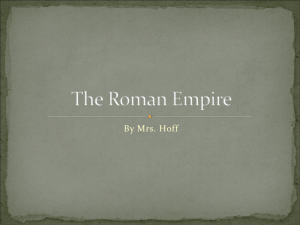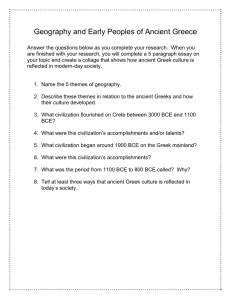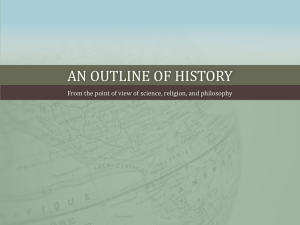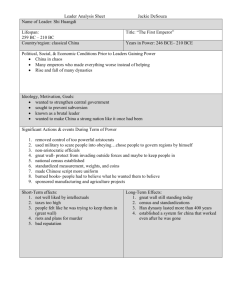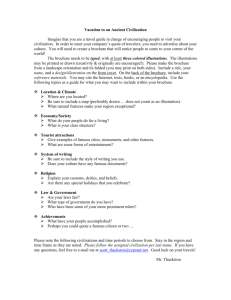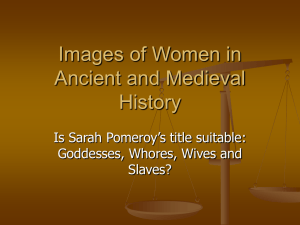K. Christ / History of Economic Thought 2: Ancient Speculations Outline
advertisement
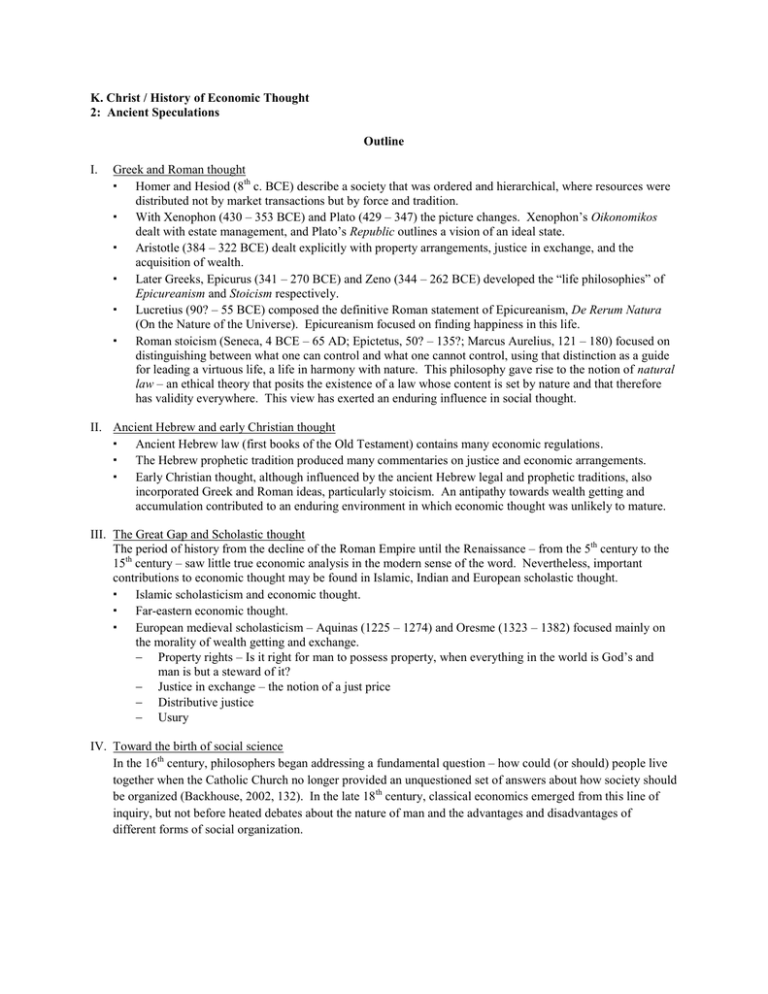
K. Christ / History of Economic Thought 2: Ancient Speculations Outline I. Greek and Roman thought ∙ Homer and Hesiod (8th c. BCE) describe a society that was ordered and hierarchical, where resources were distributed not by market transactions but by force and tradition. ∙ With Xenophon (430 – 353 BCE) and Plato (429 – 347) the picture changes. Xenophon’s Oikonomikos dealt with estate management, and Plato’s Republic outlines a vision of an ideal state. ∙ Aristotle (384 – 322 BCE) dealt explicitly with property arrangements, justice in exchange, and the acquisition of wealth. ∙ Later Greeks, Epicurus (341 – 270 BCE) and Zeno (344 – 262 BCE) developed the “life philosophies” of Epicureanism and Stoicism respectively. ∙ Lucretius (90? – 55 BCE) composed the definitive Roman statement of Epicureanism, De Rerum Natura (On the Nature of the Universe). Epicureanism focused on finding happiness in this life. ∙ Roman stoicism (Seneca, 4 BCE – 65 AD; Epictetus, 50? – 135?; Marcus Aurelius, 121 – 180) focused on distinguishing between what one can control and what one cannot control, using that distinction as a guide for leading a virtuous life, a life in harmony with nature. This philosophy gave rise to the notion of natural law – an ethical theory that posits the existence of a law whose content is set by nature and that therefore has validity everywhere. This view has exerted an enduring influence in social thought. II. Ancient Hebrew and early Christian thought ∙ Ancient Hebrew law (first books of the Old Testament) contains many economic regulations. ∙ The Hebrew prophetic tradition produced many commentaries on justice and economic arrangements. ∙ Early Christian thought, although influenced by the ancient Hebrew legal and prophetic traditions, also incorporated Greek and Roman ideas, particularly stoicism. An antipathy towards wealth getting and accumulation contributed to an enduring environment in which economic thought was unlikely to mature. III. The Great Gap and Scholastic thought The period of history from the decline of the Roman Empire until the Renaissance – from the 5th century to the 15th century – saw little true economic analysis in the modern sense of the word. Nevertheless, important contributions to economic thought may be found in Islamic, Indian and European scholastic thought. ∙ Islamic scholasticism and economic thought. ∙ Far-eastern economic thought. ∙ European medieval scholasticism – Aquinas (1225 – 1274) and Oresme (1323 – 1382) focused mainly on the morality of wealth getting and exchange. Property rights – Is it right for man to possess property, when everything in the world is God’s and man is but a steward of it? Justice in exchange – the notion of a just price Distributive justice Usury IV. Toward the birth of social science In the 16th century, philosophers began addressing a fundamental question – how could (or should) people live together when the Catholic Church no longer provided an unquestioned set of answers about how society should be organized (Backhouse, 2002, 132). In the late 18 th century, classical economics emerged from this line of inquiry, but not before heated debates about the nature of man and the advantages and disadvantages of different forms of social organization.

